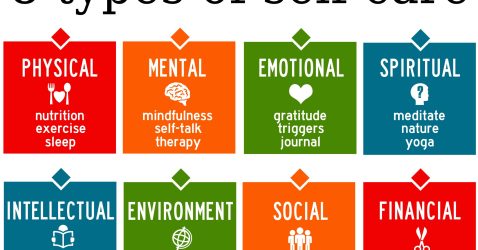Are There Natural Supplements Or Herbs That Can Help With Stress?
Feeling stressed out and overwhelmed? Look no further, because this article will explore the fascinating realm of natural supplements and herbs that may provide relief for your stress. With the constant demands of everyday life, it’s no wonder that stress has become a common issue. Luckily, there is a plethora of natural remedies widely recognized for their potential to ease stress and promote relaxation. From Ashwagandha to Chamomile, we will explore the scientific evidence behind these natural alternatives and provide insight into how they might be able to help you find a sense of calm amidst the chaos. So, sit back, relax, and embark on a journey to discover the world of stress-relieving supplements and herbs.

Identifying the Root Cause of Stress
Stress is a common part of daily life that affects us all at different times. However, it is important to identify the root cause of your stress in order to effectively manage and overcome it. By understanding what triggers your stress, you can take steps to address the underlying issues and find suitable solutions. Whether it is work-related pressures, relationship difficulties, financial concerns, or any other factors, pinpointing the source of your stress is the first step towards finding relief.
Understanding Stress and its Effects on the Body
Stress is not just a mental or emotional state; it also has profound effects on the body. When you experience stress, whether it is acute or chronic, your body responds by releasing stress hormones such as cortisol and adrenaline. These hormones can have various physiological effects, including elevating heart rate, increasing blood pressure, impairing digestion, and weakening the immune system. prolonged exposure to stress can lead to a wide range of health problems, such as cardiovascular disease, digestive disorders, weakened immunity, and mental health issues.
Examining the Different Types of Stress
Stress can manifest in different forms, and understanding the types of stress you may be experiencing can help you address them effectively. Acute stress is a temporary response to a specific event or situation, such as giving a presentation or dealing with a conflict. This type of stress usually subsides once the triggering event is over. chronic stress, on the other hand, is long-term and often stems from ongoing issues like work pressure, financial problems, or relationship difficulties. Identifying whether you are dealing with acute or chronic stress can guide you in choosing appropriate stress relief strategies.
The Role of Natural Supplements and Herbs in Stress Relief
In the quest for stress relief, many individuals turn to natural supplements and herbs as a complementary approach. These natural remedies have been used for centuries in traditional medicine systems and are believed to have various properties that promote relaxation, reduce anxiety, and improve overall well-being. While they may not be a cure-all solution, natural supplements and herbs can potentially offer support in managing stress and its related symptoms. Let’s explore the benefits of these natural alternatives in more detail.

Exploring the Benefits of Natural Supplements
Natural supplements, such as vitamins, minerals, and other nutritional compounds, can play a significant role in stress relief. B-vitamins, for example, are essential for maintaining a healthy nervous system and have been associated with improved mood and reduced stress levels. Omega-3 fatty acids, found in sources like fish oil, have also shown promising results in regulating mood and reducing anxiety. These supplements provide nutritional support to the body, which can be particularly beneficial during periods of stress when nutrient requirements may be higher.
Understanding How Herbs Can Aid in Stress Management
Herbs, on the other hand, are plant-based remedies that have been used for centuries in traditional medicine systems like Ayurveda, Traditional Chinese Medicine, and Native American healing practices. Many herbs have adaptogenic properties, meaning they can help the body adapt and respond better to stress. Additionally, certain herbs have calming or sedative effects, promoting relaxation and reducing anxiety. By incorporating herbs into your stress management routine, you can potentially harness the power of nature to support your overall well-being.

Natural Supplements for Stress Relief
There are numerous natural supplements that have shown promise in relieving stress. Let’s explore some of them:
The Power of Ashwagandha: An Ancient Ayurvedic Remedy
Ashwagandha is an herb commonly used in Ayurvedic medicine for its stress-relieving properties. It is classified as an adaptogen, which means it helps the body adapt to stress by regulating cortisol levels. Ashwagandha has been shown to reduce anxiety, improve sleep quality, and enhance overall well-being.
The Calming Effects of Passionflower
Passionflower is a herb known for its calming effects on the nervous system. It has been traditionally used to promote relaxation and alleviate symptoms of anxiety and insomnia. Passionflower may work by increasing the levels of gamma-aminobutyric acid (GABA), a neurotransmitter that helps regulate anxiety levels in the brain.
The Versatility of Rhodiola Rosea
Rhodiola Rosea is an adaptogenic herb that has been used for centuries in traditional medicine to combat stress, enhance mental performance, and boost energy levels. It is believed to work by balancing stress hormones and improving the body’s natural resilience to stress.
The Adaptogenic Properties of Ginseng
Ginseng, especially Asian ginseng (Panax ginseng), is a well-known adaptogenic herb that has been used for centuries in Chinese medicine. It is believed to improve mental and physical resilience to stress, increase energy, and enhance overall well-being.
The Soothing Effects of Valerian Root
Valerian root is a herb commonly used as a natural sedative and sleep aid. It can help promote relaxation, reduce anxiety, and improve sleep quality. Valerian root works by increasing the levels of gamma-aminobutyric acid (GABA) in the brain, which has a calming effect on the central nervous system.
The Anxiety-Reducing Benefits of Lemon Balm
Lemon balm is a herb known for its calming properties and has been traditionally used to reduce anxiety and promote relaxation. It is believed to work by increasing the levels of GABA in the brain, helping to alleviate stress and anxiety.
The Serotonin-Boosting Potential of St. John’s Wort
St. John’s Wort is a herbal remedy that has been used for centuries to treat depression and promote mental well-being. It is believed to work by increasing the levels of serotonin, a neurotransmitter associated with mood regulation and emotional well-being.
The Relaxing Properties of Chamomile
Chamomile is a herb commonly consumed as a tea, known for its calming and relaxing effects. It can help reduce anxiety, promote better sleep, and soothe the digestive system.
The Nutritional Support Provided by B-vitamins
B-vitamins, such as B6, B12, and folate, play a crucial role in maintaining a healthy nervous system. They are involved in the production of neurotransmitters and energy metabolism, which can influence mood and stress levels. Supplementing with B-vitamins can provide essential nutritional support during times of stress.
The Mood-Stabilizing Benefits of Omega-3 Fatty Acids
Omega-3 fatty acids, particularly EPA and DHA, are essential fats that have been shown to support brain health and mood regulation. They help reduce inflammation in the body and promote the production of neurotransmitters involved in mood stability.
Herbs for Stress Relief
In addition to natural supplements, there are several herbs that have been traditionally used for stress relief. Let’s explore some of them:
The Calming Effects of Lavender
Lavender is a fragrant herb known for its calming effects on the nervous system. It can help reduce anxiety, promote relaxation, and improve sleep quality. Lavender essential oil is often used in aromatherapy and can be inhaled or applied topically for stress relief.
The Stress-Relieving Properties of Holy Basil
Holy Basil, also known as Tulsi, is a herb widely used in Ayurvedic medicine for its stress-relieving properties. It is considered an adaptogen and can help the body cope with stress by regulating cortisol levels. Holy Basil has also been shown to improve mood, enhance mental clarity, and support overall well-being.
The Nervine Actions of Skullcap
Skullcap is a herb that has been used in traditional medicine to calm the nerves and promote relaxation. It can help reduce anxiety, ease tension, and support healthy sleep patterns. Skullcap is often consumed as a tea or taken as a herbal tincture.
The Sedative Nature of Kava Kava
Kava Kava is a herb traditionally used in Pacific Island cultures for its sedative and anxiolytic properties. It can help induce relaxation, reduce anxiety, and promote a sense of calmness. However, it is worth noting that kava kava should be used with caution and under the guidance of a healthcare professional, as it may have potential side effects and interactions with certain medications.
The Relaxation Induced by Passionflower
Passionflower, as mentioned earlier, is a herb known for its calming effects on the nervous system. It can help reduce anxiety, promote relaxation, and improve sleep quality. Passionflower can be consumed as a tea or taken as a herbal supplement.
The Ancient Healing Properties of Ashwagandha
Ashwagandha, as discussed in the previous section, is an adaptogenic herb that has been used in Ayurvedic medicine for centuries. It can help the body cope with stress, reduce anxiety, and promote overall well-being. Ashwagandha is available in various forms, including powders, capsules, and herbal extracts.
The Adaptogenic Abilities of Rhodiola Rosea
Rhodiola Rosea, as mentioned earlier, is an adaptogenic herb that has been used in traditional medicine for its stress-reducing properties. It can help the body adapt and respond better to stress, improve mental performance, and promote overall vitality. Rhodiola Rosea is commonly available as a herbal supplement.
The Balancing Effects of Ginseng
Ginseng, as discussed earlier, is a renowned adaptogenic herb that can help the body better cope with stress. It can enhance mental and physical resilience, improve energy levels, and support overall well-being. Ginseng is available in different varieties, with Asian ginseng (Panax ginseng) being the most well-known.
The Anxiety Reduction Provided by Lemon Balm
Lemon balm, as mentioned earlier, is a herb known for its calming properties. It can help reduce anxiety, promote relaxation, and improve sleep quality. Lemon balm can be consumed as a tea or taken as a herbal supplement.
The Natural Sedative Function of Valerian Root
Valerian root, as discussed earlier, is a herb commonly used as a natural sedative and sleep aid. It can promote relaxation, reduce anxiety, and improve sleep quality. Valerian root is available in various forms, including capsules, extracts, and teas.
Choosing the Right Natural Supplement or Herb for Your Stress
When it comes to selecting the right natural supplement or herb for stress relief, it is important to consider several factors. These include consulting with a healthcare professional, determining your specific stress symptoms, considering potential interactions and side effects, and evaluating the quality and source of supplements or herbs.
Consulting with a Healthcare Professional
Before starting any natural supplement or herb, it is advisable to consult with a healthcare professional. They can provide personalized advice based on your individual health needs and potential interactions with any medications you may be taking.
Determining Your Specific Stress Symptoms
Understanding your specific stress symptoms can help guide you towards the most appropriate natural supplement or herb. Whether you struggle with anxiety, sleep difficulties, low mood, or other stress-related issues, there are different options available to target your specific concerns.
Considering Potential Interactions and Side Effects
Natural supplements and herbs, like any other form of medication, can have potential interactions and side effects. It is essential to research and consider potential interactions with any medications you are taking, as well as any known side effects associated with specific supplements or herbs.
Evaluating the Quality and Source of Supplements or Herbs
When choosing natural supplements or herbs, it is important to consider the quality and source. Look for products that have undergone third-party testing for purity, potency, and safety. Ensure that the supplements or herbs are sourced from reputable manufacturers and are free of contaminants.
Effective Usage and Dosage
To maximize the benefits of natural supplements or herbs for stress relief, it is essential to follow recommended usage and dosage guidelines. This includes:
Following Recommended Dosage Guidelines
Always adhere to the recommended dosage guidelines provided by the manufacturer or healthcare professional. Dosage can vary depending on the specific supplement or herb, as well as factors such as age, weight, and underlying health conditions.
Considering the Duration of Usage
Natural supplements or herbs may require regular usage and time to build up in the system before noticeable effects are experienced. It is important to be patient and consistent in your usage, following the recommended duration for optimal results.
Using Supplements as an Adjunctive to Healthy Lifestyle Practices
Natural supplements or herbs should be viewed as a complement to healthy lifestyle practices. Incorporating stress management techniques such as exercise, mindfulness, relaxation techniques, and maintaining a balanced diet are crucial for overall well-being.
Maintaining Consistency for Optimal Results
Consistency is key when it comes to using natural supplements or herbs for stress relief. It is important to incorporate them into your daily routine and use them as directed to experience the desired effects. Results may vary from person to person, so patience and consistency are essential.
Potential Limitations and Precautions
While natural supplements and herbs can offer potential benefits for stress relief, it is important to be aware of their limitations and take necessary precautions. These include:
Not a Replacement for Professional Medical Advice
Natural supplements or herbs should not be used as a replacement for professional medical advice or treatment. If you are experiencing severe or prolonged stress symptoms, it is important to consult with a healthcare professional for a comprehensive assessment and appropriate guidance.
Not Suitable for Everyone
Not all supplements or herbs are suitable for everyone. Some may have specific contraindications or interactions with certain health conditions or medications. It is important to thoroughly research and seek guidance from a healthcare professional before starting any new supplement or herb.
Possible Interactions with Other Medications
Certain natural supplements or herbs may have interactions with other medications you may be taking. These interactions can vary and may potentially affect the efficacy or safety of both the supplement/herb and the medication. It is crucial to inform your healthcare professional about any supplements or herbs you are taking to ensure there are no adverse interactions.
Pregnancy and Breastfeeding Considerations
Pregnant or breastfeeding individuals should exercise caution when considering natural supplements or herbs for stress relief. Certain supplements or herbs may not be recommended during pregnancy or breastfeeding due to potential risks to the mother or baby. It is essential to consult with a healthcare professional regarding the safety and suitability of any supplements or herbs during this time.
Conclusion
In conclusion, natural supplements and herbs can potentially play a role in stress relief by promoting relaxation, reducing anxiety, and supporting overall well-being. However, it is important to identify the root cause of your stress and consult with a healthcare professional before incorporating any new supplements or herbs into your routine. By considering your specific stress symptoms, potential interactions and side effects, and evaluating the quality and source of supplements or herbs, you can find the right natural solution to help combat stress and promote overall well-being through effective stress management. Remember to use these natural remedies as an adjunct to healthy lifestyle practices and maintain consistency for optimal results. Harness the power of nature to find your own path to stress relief and overall well-being.

















